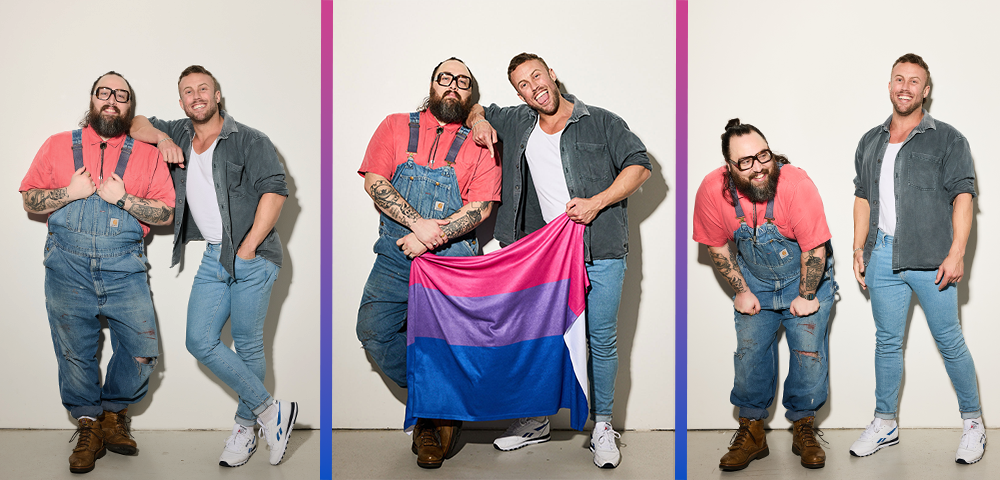

THE true prevalence of transgendered children is unknown, but given the number of transgender and gender-variant children now coming forward, the number could be as high as one in 500.
For some parents, it’s pretty obvious from a very young age – their child is always insisting, from the time they are able to speak, that they are the opposite gender. The convincing aspect is that their identification as the opposite gender is unwavering over time, not simply a phase during their childhood. So if your child fits into this category you can be fairly sure they are transgender.
Sometimes it’s not always so clear-cut, but there are usually signs to look out for that can alert a parent to the possibility. If a child always prefers to play with children of the opposite gender, and play with toys that are more specifically for the opposite gender, and if they prefer to dress as the opposite gender, there is a chance they may be transgender even if they do not assert this themselves. However they may simply be gender-variant (or gender- nonconforming).
For some children, their identification with the opposite gender may simply be a short phase in their childhood, of which they eventually grow out. It’s important to differentiate this from the children who suppress their transgender feelings because of confusion or fear.
Since it can all be so confusing, it’s important that these children are properly assessed by a professional (usually a psychiatrist, psychologist or gender specialist) who has experience in this field. For young children this assessment should continue at intervals throughout their childhood.
WHY IS YOUR CHILD TRANSGENDER?
You did not cause your child to be transgender. It is becoming clearer over time that gender identity is not something that can be forcibly changed, but is rather more likely to be related to each person’s unique neural development. In other words, people are simply born that way.
If a health professional ever tries to tell you that they can somehow “cure” your child of being transgender, you should run a mile from them and seek a second opinion from someone with more knowledge and understanding of this area.
While it’s true that some children do grow out of these feelings, this is not something that you can ever force to happen through therapy or punishment of the behaviour, and this kind of attempt is likely to be very damaging to the individual involved.
Sometimes parents are worried that by acknowledging their child’s gender variance and talking about it, they will make their child more likely to be transgender. However just as you can’t talk someone out of being transgender, you can’t talk them into it either, and talking about how your child feels and letting them know you accept them is the single most important thing you can do as their parent.
WHEN SHOULD MY CHILD TRANSITION?
This is a complex question, and you should ultimately be guided by how your child feels about their gender. Children who are very distressed by their physical appearance (we call this dysphoria) may try to change their own bodies – some little boys may even threaten to cut off their penis. For these children it is often necessary for them to start transitioning outwardly during the primary years – this may involve them being called by a different name and being allowed to wear the clothes of their choice. It’s vital to involve the school in this process.
HOW IMPORTANT IS IT TO START TREATMENT BEFORE PUBERTY?
Many transgender adults will tell you that they wish they had been able to have treatment before they entered adolescence. From about the age of 12, children start to develop the sexual characteristics that shape them into either men or women. Boys will start to get facial and body hair, their testicles will enlarge, their voices will deepen and their Adam’s apple becomes more prominent, and they will grow taller. Girls will start to menstruate and develop breasts.
Once these changes happen, they are mostly irreversible without surgical intervention, and some things like the deep voice and stature cannot be changed.
At the onset of adolescence, transgender children will often become very distressed by the changes going on in their bodies. This can lead to severe depression, self-harm and even suicide attempts.
If a pre-adolescent child is placed on drugs known as puberty blockers their bodies will not undergo these changes. It’s a way of putting off puberty until such time as they are ready to physically transition with the aid of hormone therapy. Some people see it as “buying time” while either waiting for permission to go onto the hormones that they ultimately need in order to change their bodies to match their gender identity, or while they sort out what is really going on.
Dr Fiona Bisshop is a GP in Brisbane with a special interest in transgender health, HIV and sexual health.
Read more of the Star Observer’s special trans* feature:
RELATED: My Words: Any point on the kaleidoscope
RELATED: The Lawyer: Trans* community and the law
RELATED: The Parent: My daughter transitioned as a child









